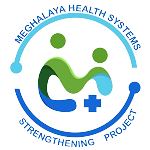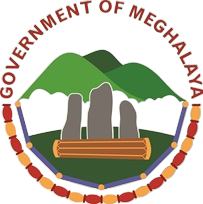SERVICES
- Objective[s] of the Assignment:
The current assignment aims to design and conduct implementation research on the state’s recent interventions to strengthen the systems, particularly the content, fidelity of implementation and enablers/barriers to process changes related to governance, facility operations and community engagement. The specific objective of the assignment is to:
- Conduct an adaptive process evaluation of the various systemic processes and practices innovated by the state under the Rescue Mission, especially review meetings, Sector Team activities and Village Health Councils;
- Based on the findings and learnings from evaluation, provide recommendations to adapt and strengthen the system.
2. Scope of Services:
- Develop a comprehensive study design: This involves working closely with the state leadership (Government of Meghalaya) to understand different innovations, their genesis, objectives and the expected outcomes. This will involve developing theories of change as per different scenarios to achieve desired results or outcomes.
- Primary Data Collection: This will include:
- Development of qualitative interview tools/guides;
- State Level: identify and interview key stakeholders (implementers, programme managers, policymakers) and observe meeting and collaboration processes (e.g., Sector Team meetings, District Reviews, and other Rescue Mission activities)
- District Level: identify & interview key stakeholders (implementers, programme managers), collect monitoring/administrative data, and observe processes of Rescue Mission. This can be done for 5 districts initially and after sharing the findings/ results with the leadership, adapt the tools accordingly to expand it to remaining districts of the state.
- Facility Level: identify & interview health teams (local-level service providers e.g., Mos, ASHA, AWW, ANMs), conduct observations of Rescue Mission activities, in a sample of health facilities across the state.
- Community Level: identify & interview key stakeholders such SHG members, frontline health workers and community-level bodies, conduct focus group discussions with women, and observations at the community-level of processes related to engagement with the health system
- Analysis
- Analyze NFHS-5 data at district level to inform decision-making and planning
- Analyze quantitative data (HMIS, MOTHER app, facility-level data) throughout the study period. as mutually decided with the Govt of Meghalaya on an ongoing basis
- Undertake qualitative assessment of the translated and transcribed primary data collected under point b. (interviews, focus group discussions, observations)
- Develop representative “cases” of different facility cluster types to highlight important contextual, administrative, or management factors that characterize performance, given that there is variation in how Rescue Mission is conducted and experienced across the state. This variation can serve to strengthen the understanding of what is working in Rescue Mission approaches, for whom, and under what conditions.
- Advising Strategic Planning & Implementation
- Ongoing feedback/inputs to Meghalaya’s Rescue Mission on emerging themes and preliminary findings.

